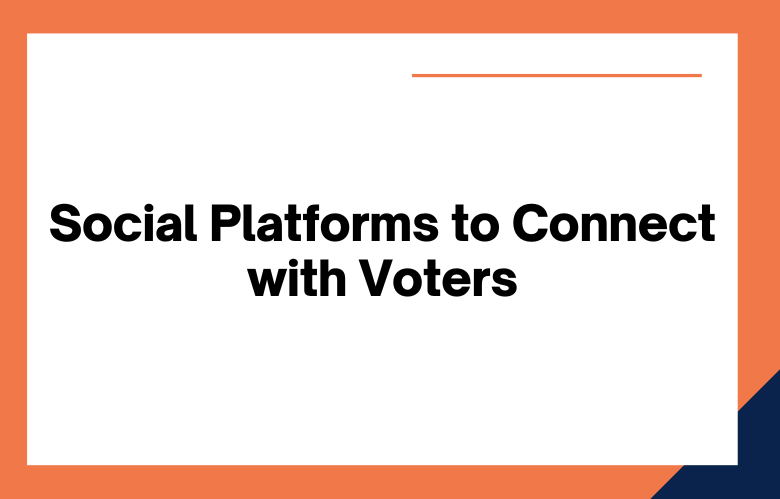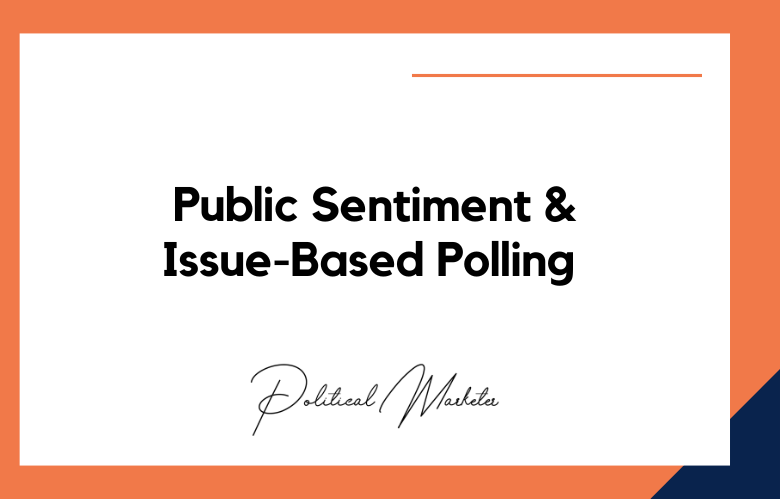In the ever-changing world of technology, politicians must stay connected with their voters. They can do this through various methods, but social media is one of the most effective ways to reach people.
Whether you’re running for local office or a national position, connecting with voters via social media is essential in gaining support and creating awareness. Let’s explore how to use social platforms to communicate with your voters.
Connecting Voters with Social Platforms
Making it Personal
Social media lets voters directly connect with the people they are voting for. It would help if you strived to make your social media presence as personable as possible by sharing meaningful content and engaging conversations showing your personality and values. If a voter feels like they know and relate to you personally, then chances are they will be more likely to vote for you.
Be sure to post frequently, but also keep it relevant and exciting. Use stories highlighting who you are and why you are running for office to create an emotional connection with potential voters. Also, ensure that you respond quickly when someone posts something on your page so that people know their voice has been heard and valued.
Stay on Brand
When using social media to connect with your voters, it is vital that your message stays consistent across all platforms and accurately reflects who you are as a candidate. Creating a cohesive brand identity will help ensure that your message resonates with those who interact with your page or profile. That being said, don’t be afraid to experiment! Try different strategies, such as polls or videos, to keep things fresh while staying true to your core values.
Choosing the Right Platforms
Focusing on the right platforms for your target audience is essential for social media. Different platforms have different demographics; understanding your target voter’s age range and interests will help you decide which platforms best suit your campaign messaging. That said, there are some social media staples that every candidate should utilize—Facebook, Twitter, and Instagram—as they offer a wide variety of features that can help spread your message.
Getting Creative with Content
Posting engaging content is critical when using social media as part of your campaign strategy. You want to present yourself positively while giving people something to talk about and share. Try mixing up post types, such as hosting Q&A sessions, polls, videos, images, or articles related to current events or topics relevant to your district or state. It’s also essential to keep a consistent stream of content across all channels, as this helps build momentum and keeps followers engaged in conversations about your campaign goals.
Analyzing Your Results
Now that you’ve been actively utilizing social media platforms to connect with voters, you must review the results occasionally to understand what works best for your campaign efforts. Analyzing metrics such as likes, comments, shares, etc., can give insight into which posts resonate well with followers and what type of content drives engagement. This information will help inform future posts so you can continue connecting with voters effectively over time!
Create Quality Content
When it relates to social media, content is king. It would help if you focused on creating high-quality content that resonates with your target audience. Ensure you post regularly and keep your content exciting and relevant to people’s concerns. This will help keep them engaged and more likely to follow your accounts.
Connect with Your Followers
Social media isn’t just a one-way street. Reaching out and connecting directly with people following you on social media is essential. Engage in conversations with followers by responding to comments, answering questions, and even starting polls or surveys when appropriate. It will help connect you and your supporters beyond just posting content.
Focus on Reaching New People
Your current followers are essential, but remember, potential new voters are out there! Using targeted ads, hashtags, and influencers, you can reach new people interested in hearing more about your campaign. Utilizing these tools will help expand your reach beyond those who already follow you on social media.
Establish Your Authority
When connecting on social media, you must establish yourself as an authority figure within the political realm by providing valuable information about topics related to politics or other issues affecting society. Posting about current events or providing opinion pieces on pressing issues can help boost credibility among potential voters while also displaying how knowledgeable you are about specific topics or initiatives within the political sphere. Letting people see how passionate and knowledgeable you are about politics will help them trust your ability as a politician if elected into office.
Choose the Right Platforms
The first step in effectively utilizing social media for political campaigning is choosing the right platform. Different platforms have different user demographics and offer additional features to target specific voter groups. For example, Facebook has a broader reach than Instagram and Twitter. At the same time, Instagram’s visual content can particularly effectively target younger voters or those who prefer visuals over text-based posts. Once you’ve chosen the right platform(s), it’s time to start planning how to use them to reach out to voters and build support for your campaign.
Create Engaging Content
Once you have chosen the right platform(s), creating engaging content that speaks directly to your target audience is essential. This could involve creating polls or surveys or sharing interesting articles or videos related to interesting topics for your target voters. Additionally, remember that content should be about promoting yourself and providing valuable information to help voters better understand the issues.
Engage with Yoessentialce
Finally, it is essential to actively engage with your audience by responding promptly and thoughtfully to comments and messages from followers. It will help foster relationships with potential supporters by showing them you listen and take their feedback seriously. Additionally, this engagement will help maintain relationships with current followers by reminding them why they follow your page first.
Define Your Goals
Before using social media to connect with voters, stepping back and defining your goals is essential. What do you hope to achieve by using social media? Do you want to increase voter turnout in your district? Get many people involved in the political process? Educate voters about the issues. Once you know your goals, you can develop a social media strategy to help you achieve them.
Choose the Right Platform
There are various social media platforms out there, and each one serves a different purpose. You’ll need to choose the platform that makes the most sense for your goals and target audience. For example, if you’re trying to reach young voters, Snapchat or Instagram might be better than Facebook.
Create Engaging Content
Once you’ve chosen a platform, it’s time to start creating content. But before posting random things, consider what content will engage your target audience. What kind of posts will get them talking? What type of information do they want to see? If you need more time, try doing market research or focus groups.
Post Regularly
One of the most significant mistakes people make when using social media is not posting regularly enough. To keep people engaged, you need to be posting new content regularly. That doesn’t mean you need to post every hour of every day, but you should try to post at least once or twice a day, depending on the platform.
Monitor Your Activity Levels
It’s not enough to post regularly – you must also monitor your activity levels and ensure you’re engaging with your audience regularly. That means responding to comments and questions, liking and sharing other people’s posts, and being active on the platform. If you’re not doing this, your audience will quickly lose interest in your words.
Use Analytics Tools
Most social media platforms have built-in analytics tools that help you track your progress and understand your content’s performance. These tools can be incredibly useful in helping you fine-tune your strategy and ensure you’re on track to achieving your goals.
Be Prepared for Negative Feedback
No matter how well-crafted your content is or how carefully you monitor your activity levels, there’s always a chance that someone will leave negative feedback or criticism. Preparing for this and planning to respond if it happens is essential.
Be Consistent
Social media is all about being consistent. That means posting regularly and keeping up with comments and messages. People will quickly lose interest in following your campaign if you only post occasionally or never respond to comments.
Monitor Your Activity
It’s also essential to monitor your social media activity. This means watching what people say about you and your campaign. Are they primarily positive? Negative? Indifferent? Use this information to adjust your strategy as needed.
Conclusion
Using social media platforms effectively is essential in connecting with potential voters and gaining support during election season.
By staying true to themselves while displaying knowledge of current events, creating meaningful content, interacting directly with followers, and establishing themselves as an authority figure within the political realm, politicians can gain the trust of their constituents while building solid relationships along the way!
And remember—social media isn’t only applicable during election season; once elected into office, use these same strategies throughout your term to cultivate relationships with those who voted for you!
It’s essential for politicians today—no matter what level—to stay connected with their constituents through digital communication to succeed in their respective roles as public servants.
So please take advantage of this powerful tool; it might make all the difference come the voting day!
Creativity lets your campaign use social media platforms to connect with voters more effectively and create essential relationships in any political election.
These days, potential voters are using social media more than ever to research candidates and learn about the issues, making it an essential tool for campaigns of all sizes.
We’ve worked with candidates at all levels of government, and we know how to maximize your social media presence to reach your target audience. Contact us today to learn more about what we can do for you.
Call: +91 9848321284
Email: [email protected]











